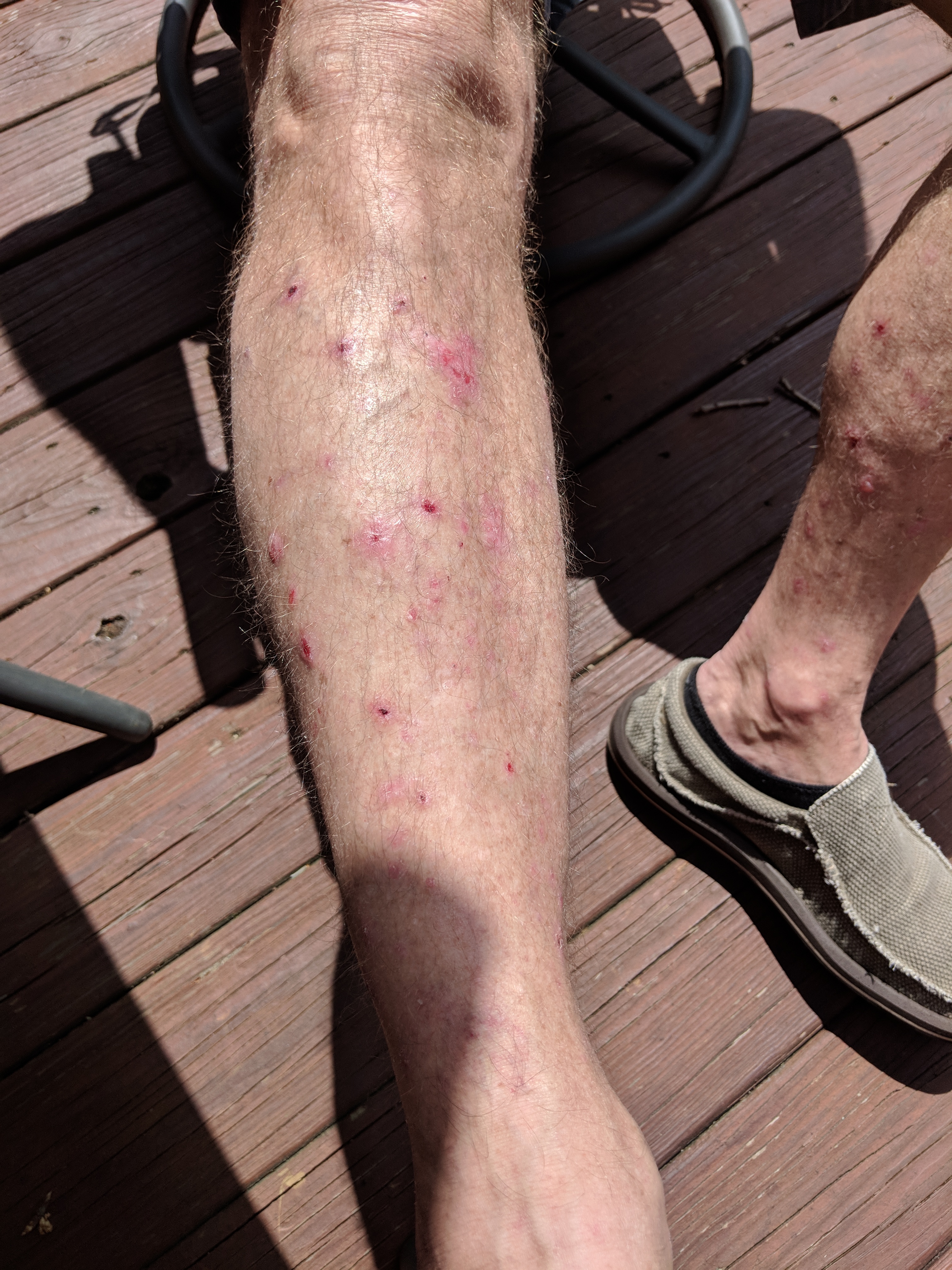Pemphigoid
Editor-In-Chief: Prab R Tumpati, MD
Obesity, Sleep & Internal medicine
Founder, WikiMD Wellnesspedia &
W8MD medical weight loss NYC and sleep center NYC
| Pemphigoid | |
|---|---|

| |
| Synonyms | N/A |
| Pronounce | N/A |
| Specialty | N/A |
| Symptoms | Blisters, itching, skin rash |
| Complications | Infection, scarring |
| Onset | Typically in older adults |
| Duration | Chronic |
| Types | N/A |
| Causes | Autoimmune disease |
| Risks | Age, genetic predisposition, certain medications |
| Diagnosis | Skin biopsy, immunofluorescence |
| Differential diagnosis | Pemphigus, dermatitis herpetiformis, eczema |
| Prevention | N/A |
| Treatment | Corticosteroids, immunosuppressants |
| Medication | Prednisone, azathioprine, methotrexate |
| Prognosis | N/A |
| Frequency | Rare |
| Deaths | N/A |
Pemphigoid is a group of rare autoimmune diseases that primarily affect the skin and mucous membranes. The condition is characterized by the formation of blisters, which can vary in size and may be filled with fluid. Pemphigoid is most common in older adults and can be life-threatening, particularly for those with poor general health.
Types[edit | edit source]
There are several types of pemphigoid, including:
- Bullous Pemphigoid: This is the most common type of pemphigoid. It is characterized by large, tense blisters that often appear on the skin areas that flex, such as the lower abdomen, upper thighs, and armpits.
- Mucous Membrane Pemphigoid: This type of pemphigoid primarily affects the mucous membranes, such as the mouth, eyes, throat, and genitals. It can lead to scarring and, in severe cases, blindness.
- Pemphigoid Gestationis: This rare type of pemphigoid occurs during pregnancy, typically in the second or third trimester, and may also affect the newborn.
Causes[edit | edit source]
Pemphigoid is caused by an abnormal immune response, where the body's immune system mistakenly attacks the cells in the skin or mucous membranes. The exact trigger for this immune response is unknown, but it may be linked to certain medications, UV light exposure, or other autoimmune diseases.
Symptoms[edit | edit source]
The primary symptom of pemphigoid is the formation of blisters on the skin or mucous membranes. Other symptoms may include itching, redness, and discomfort or pain in the affected areas.
Diagnosis[edit | edit source]
Diagnosis of pemphigoid typically involves a physical examination, patient history, and specific diagnostic tests, such as a biopsy or blood test to detect specific antibodies.
Treatment[edit | edit source]
Treatment for pemphigoid aims to control symptoms and prevent complications. This may involve the use of corticosteroids, immunosuppressant drugs, and other medications to reduce inflammation and suppress the immune response.
See also[edit | edit source]
| Hypersensitivity and autoimmune diseases (279.5–6) | ||||||||||||||||
|---|---|---|---|---|---|---|---|---|---|---|---|---|---|---|---|---|
|
NIH genetic and rare disease info[edit source]
Pemphigoid is a rare disease.
| Rare and genetic diseases | ||||||
|---|---|---|---|---|---|---|
|
Rare diseases - Pemphigoid
|
Search WikiMD
Ad.Tired of being Overweight? Try W8MD's NYC physician weight loss.
Semaglutide (Ozempic / Wegovy and Tirzepatide (Mounjaro / Zepbound) available. Call 718 946 5500.
Advertise on WikiMD
|
WikiMD's Wellness Encyclopedia |
| Let Food Be Thy Medicine Medicine Thy Food - Hippocrates |
Translate this page: - East Asian
中文,
日本,
한국어,
South Asian
हिन्दी,
தமிழ்,
తెలుగు,
Urdu,
ಕನ್ನಡ,
Southeast Asian
Indonesian,
Vietnamese,
Thai,
မြန်မာဘာသာ,
বাংলা
European
español,
Deutsch,
français,
Greek,
português do Brasil,
polski,
română,
русский,
Nederlands,
norsk,
svenska,
suomi,
Italian
Middle Eastern & African
عربى,
Turkish,
Persian,
Hebrew,
Afrikaans,
isiZulu,
Kiswahili,
Other
Bulgarian,
Hungarian,
Czech,
Swedish,
മലയാളം,
मराठी,
ਪੰਜਾਬੀ,
ગુજરાતી,
Portuguese,
Ukrainian
Medical Disclaimer: WikiMD is not a substitute for professional medical advice. The information on WikiMD is provided as an information resource only, may be incorrect, outdated or misleading, and is not to be used or relied on for any diagnostic or treatment purposes. Please consult your health care provider before making any healthcare decisions or for guidance about a specific medical condition. WikiMD expressly disclaims responsibility, and shall have no liability, for any damages, loss, injury, or liability whatsoever suffered as a result of your reliance on the information contained in this site. By visiting this site you agree to the foregoing terms and conditions, which may from time to time be changed or supplemented by WikiMD. If you do not agree to the foregoing terms and conditions, you should not enter or use this site. See full disclaimer.
Credits:Most images are courtesy of Wikimedia commons, and templates, categories Wikipedia, licensed under CC BY SA or similar.
Contributors: Prab R. Tumpati, MD


